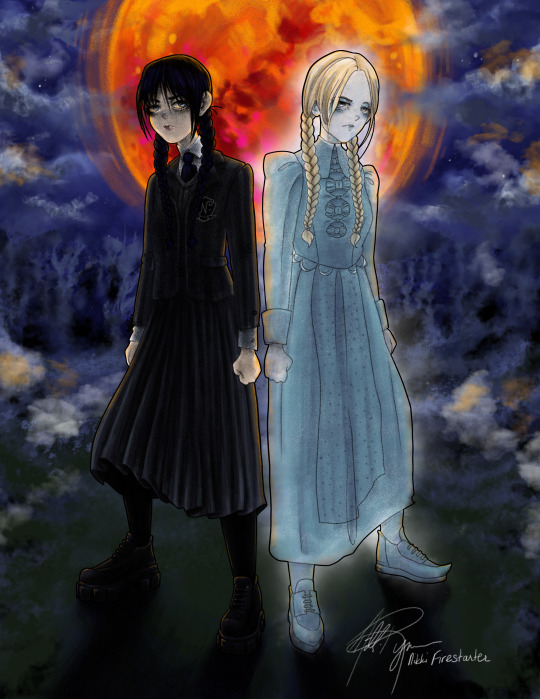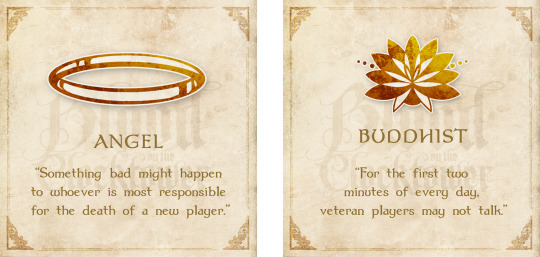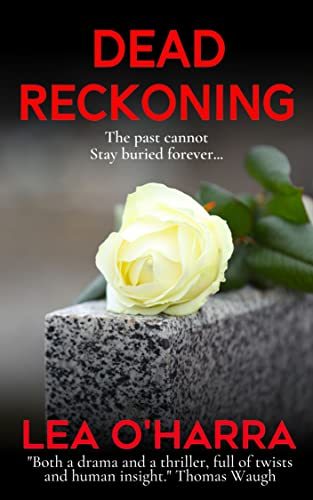#MurderMystery
Text
youtube
The Most TWISTED Case You've Ever Heard: The Tragic Tale of Lori and Mark Phillips!
#us news#Investigative#LoriandMarkPhillips#MarkPhillips#LoriAnnPhillips#LoriAnn#TrueCrime#MurderMystery#LoriAndMarkPhillips#TwistedCase#TragicTale#DeceptionUnveiled#CrimeStory#Investigation#JusticeDenied#ShockingRevelation#TrueCrimeCommunity#ColdCase#CrimeDocumentary#YouTubeCrime#crimeinvestigation#truecrimestory#criminalminds#coldcase#mystery#detective#serialkillers#youtube#foryou#Youtube
3 notes
·
View notes
Text
Tragic Scene Unfolds: Cops Stumble Upon Body in Residential Property!
Law enforcement discovers a deceased individual in a residential property, leading to an extensive investigation. The once-tranquil neighborhood is shaken by sorrow and disbelief as authorities probe the matter. Residents grapple with shock and uncertainty, fostering an atmosphere of unease. Nevertheless, the community stands together in mourning and pledges to honor the memory of the deceased.
youtube
#youtube#MrDetective#Police#BodyDiscovery#LawEnforcement#CrimeSceneInvestigation#TrueCrime#PoliceDiscovery#police#crime#investigation#mystery#shockingnews#newsupdate#breakingnews#detective#murdermystery#truecrime#forensics#crimesceneinvestigation#policeinvestigation#policeshocked#bodydiscovery
3 notes
·
View notes
Text
Explaining the Rules to New Players
By Steven Medway
When explaining the rules to new players, stick closely to the rules explanation sheet https://wiki.bloodontheclocktower.com/Rules_Explanation
The rules explanation sheet takes no more than 5 minutes to read, and it is intentionally structured as a three-step process:
1) The Theme
2) The Goal
3) The Rules
The Theme
I have found that the best way to learn the rules of a board game is to start with the theme of the game. This gets players interested in what is about to come, sets the tone, and puts everything that you are about to say into perspective. If players are on board with playing a secretive backstabbing vampire game, they need to know in the first minute what they are getting into and why it is going to be fun. Similarly, if players are not wanting to play a stock-trading game set in the 1800s where we are each competing to own the most attractive investment portfolio, then they will get interested or disinterested at that point. First of all, players want to know "What on earth is this about?" and "Why is this going to be fun?". Explaining the game's theme also sets the stage for who are likely to be the good guys, the bad guys, and the rough expectations of the game's ‘plot’.
The Goal
After players know what a game is roughly about, the next best thing to explain is the goal. Before any rules are mentioned, in any game I run, I explain the goal of each player. In Clocktower, this is pretty simple. It lets each player know where they are trying to get to, which is necessary if they are to judge whether action A or action B will get them there. When a player knows what the game's theme is, then understands their goal in playing, they are primed to listen to the rules with heightened interest. Knowing the theme and goal before knowing the rules means the rules matter to each player.

The Rules
Explaining the rules can be done in two ways for most games: either all at once, or just enough to get you playing, and you can learn the rest as you go. Clocktower is designed to explain the rules to players piecemeal. They learn the rules about the basic structure of the game just before they get their character tokens. They learn the rules about voting just before their first vote. They learn the rules about how the characters work by talking amongst themselves during the game itself, and by asking the storyteller questions. Some players will want all the rules (and I mean ALL the rules) explained at the beginning of the game. I do not recommend doing this. If you explain the rules all at once, you satisfy the players that can learn a game’s rules all at once, but you put all the players who learn ‘as they go’ at a severe disadvantage due to information overload. If you explain the rules ‘as they go’, then you satisfy the players who learn as they go, and the ‘all-at-once’ players can still ask you all their questions as they come up.
The Summary
Clocktower has a rules summary after these three steps have been completed, which lets the players know the most important things. Normally, when explaining a game, I use the summary period to repeat the most important things that each person needs to know to begin - the theme, their goal, and the most important things that they can do or decide. Board games are fundamentally about making interesting decisions, and players will think about and retain knowledge that merges with the strategic plans they are beginning to form.
In Clocktower, this summary period is used to let the players know that they can:
Talk at any time
NOT peek in the Grimoire
Ask the storyteller questions
Be kind to each other
These four rules aren't really rules at all - they are communications from the storyteller. Their intent is to put the players at ease, to remove any anxiety, to instill confidence, and to let them know that they can be themselves and say what comes naturally.

The Three-Step Process & Strategy Advice
This three step process has proved invaluable in all sorts of games that I've run. It allows players to decide if they really want to be playing, just in case they get turned off by the theme. It gets players interested in learning the rules of a particular game. And it gets players playing quickly. For particularly long and complicated games, I might add a practice round, so that players learn by doing but in a safe environment where making mistakes is encouraged. I've never found this is needed in Clocktower, though.
I don't need everyone to literally read the rules explanation sheet word-for-word every time. I never do (which is why there were so many typos on the prototype version!). But I very much recommend that you follow the rules explanation sheet closely when explaining the rules in your own words. The rules explanation sheet explains the theme, goals, day phase, night phase, drunkenness and poisoning, very basic strategy, and things-to-know, all very succinctly. I find that if I stray too far from the sheet, I always end up either over-explaining some rule or forgetting something.
For Clocktower, this process should take about 5 minutes. At conventions, where my games go for an hour, I reserve 5 minutes for rules explanation, 5 minutes for setup, 45 minutes for the game, and 5 minutes for the players to chat afterwards.
Apart from the absolute basics, I also keep strategy advice to the absolute minimum. I advise good players to share who they are and what they know, at some point during the game when they feel it is right. I advise evil players to pick a good character to pretend to be, and to learn how that good character ability works so that they know what to say. That's it. What new players think they want is helpful strategy advice. I've found that what they really want is to learn the rules of the game and to relieve the anxiety around saying the wrong thing, which comes with a fear of letting their team down. Too much strategy advice for a new player either overwhelms them, increasing their anxiety, or they feel like they are being told the ‘right way to play’ and that they would be stupid to do anything different than what the ST advised them to do. Neither is helpful. Instead, the plan should be to get the new players to learn the rules (which they will do during their first game) and to gain confidence (which should happen naturally if the group is supportive and not telling them what they ‘should’ do). Once a new player has a feel for the basic rules and has some confidence, that is when discussions of strategy become useful.

Illuminative Counter-Examples
The best way to see why this rules explanation process works is by noticing examples of the opposite, i.e. a poor rules explanation. New players get confused, disengage or get bogged down in unimportant details at the expense of fun.
"Hi everybody. I will be explaining the rules. Ok. So, Clocktower is a voting game. Each player can vote as many times as they want per day, but can only nominate once. Dead players lose their ability, but die if they get the most votes. Also, the dead can only vote once, but can't nominate. Voting goes in a clockwise circle, starting with the player that was nominated. A hand up is a vote. Evil players tend to vote more than good players, so you may want to not vote as much if you are evil, so that you look like a good player. Some players want to die, like the Ravenkeeper, but that can only happen at night. Sometimes, the Recluse will want to be executed, so don't assume that any player who nominates themselves is being silly. Some other players may want to be executed, but most don't. If you are the Demon, you definitely don't want to be executed, unless there is a Scarlet Woman in play. Now, this is how the night phase works..." In this example, rules are explained before theme and goal. Players don't know what on earth an execution is, or what a vote is, or what a Demon is. None of these terms make sense, so a player phases out and gives in to confusion. Also, giving players strategy advice before they know the rules isn't helping.
A rules explanation that goes for 45 minutes, due to a few veteran players interrupting with "useful advice" and "interesting character interactions" or "rules exceptions for characters that are not on this script", etc. The veteran players felt important and were keen to play, but the new players felt that they shouldn't say anything without checking in with the veteran players first or just let the veteran players lead. While some veteran players enjoyed this, other veteran players were bored. The new players were overwhelmed.
Forgetting to explain the theme of the game, or explaining the theme after the rules and goals. This makes a game feel boring, and a lack of interest in the game means a lack of retention of the rules.
Forgetting to explain the goal of the game, or explaining the goal after the theme and rules. Without a goal to aim for, players don't know which rules are important and which are not.
Going into lengthy detail on what you are not allowed to do during the rules explanation, such as talking about your character before the first night is over, breaking rule 4, photographing or texting, talking about what you are doing at night during your action, etc. This makes some new players afraid to say anything at all and new players wouldn't normally do these things anyway, so explaining it to them is a waste of time.
Taking an hour to explain one-by-one what each character ability is and how it works. Players not only get distracted, but they can end up feeling anxious about asking the storyteller any follow-up questions. Due to the characters having already been explained to them, it’s easy for new players to feel like they were supposed to know how everything worked already.
Each Storyteller can make the game their own by adding their own theme and flair. But in terms of new players, by far the best method I've found to ease them into a game (any game), whether they are with veterans or other beginners, is the theme > goal > rules process. With the added bonuses of focusing on just the important rules ‘as they need them’ and having someone being available to answer any questions they have as they go, players quickly gain knowledge and confidence. It might take a minute or two, but it almost never takes more than a game or two.
- Steven
18 notes
·
View notes
Text

Book of the Day, November 13th -- C/T/M/H, Rated 5/5 stars
Temporarily Discounted! Get your copy below: https://forums.onlinebookclub.org/shelves/book.php?id=606902
Charlie's Diner by Dennis F Killeen
This book received a PERFECT 5-star rating from an Onlinebookclub.org Reviewer, and has five 5-star ratings on Amazon!
----------
Charlie is a grieving widower, who envies happy families. The Owen family is a seemingly happy family. A chance lunch at Charlie’s favorite diner will alter the lives of the Owen family forever.
"*Charlie's Diner* by Dennis F. Killeen receives 5 out of 5 stars from me due to its engaging plot, mystery, and exceptional editing. I recommend this book to audiences interested in murder mysteries, detective stories, and action thrillers." ~ OBC Reviewer
3 notes
·
View notes
Photo

"𝘠𝘰𝘶 𝘢𝘳𝘦 𝘯𝘰 𝘴𝘰𝘧𝘵 𝘵𝘩𝘪𝘯𝘨 𝘵𝘰 𝘣𝘦 𝘤𝘰𝘥𝘥𝘭𝘦𝘥... 𝘠𝘰𝘶 𝘢𝘳𝘦 𝘣𝘰𝘭𝘥𝘦𝘳 𝘵𝘩𝘢𝘯 𝘵𝘩𝘦 𝘴𝘶𝘯, 𝘚𝘪𝘨𝘯𝘢 𝘍𝘢𝘳𝘳𝘰𝘸, 𝘢𝘯𝘥 𝘪𝘵'𝘴 𝘵𝘪𝘮𝘦 𝘵𝘩𝘢𝘵 𝘺𝘰𝘶 𝘣𝘶𝘳𝘯." Belladonna by @authoradalyngrace It’s about time I come back from my unexpected hiatus, and what better book to do it with. Signa is a fascinating character and seeing her grow and change throughout the book was a gothic pleasure. But I must admit my heart has been stolen by Death, in all his forms. I loved his portrayal so much. His role was perfect and I loved the unique take. Then we have the mystery. A gothic murder mystery full of twists and turns and different victims and leads and I was kept guessing till the end. I am more than excited for Foxglove! I don’t know how I’m going to wait until next year but I have a feeling it will be well worth the wait! 🫐 Have you read this yet? What did you think? 🏷️ #belladonna #adalyngrace #gothicmystery #murdermystery #bookreview #bookishintherain #fivestarreads #favoritebooks #gothicromance #readingrecommendations https://www.instagram.com/p/Clm6zN5LgfR/?igshid=NGJjMDIxMWI=
#belladonna#adalyngrace#gothicmystery#murdermystery#bookreview#bookishintherain#fivestarreads#favoritebooks#gothicromance#readingrecommendations
21 notes
·
View notes
Photo




I worked on the television series CSI: Las Vegas as a prop maker working with an amazing team of artists and crafts people where I helped to make, build, and fabricate many, many hundreds of miniature props and pieces. Everything had to be made in duplicate because the actors had to handle the actual miniature props which were built at 1/4″ = 1′-0″ scale, but there also had to be a duplicate model of the one the actors handled which was for actual filming so a camera could travel through the miniature set. Those larger models were built at 1″ = 1′-0″. A much larger model, to say the least.
#csilasvegas#csi las vegas#miniaturekiller#csilasvegasminiaturekiller#amazingminiatures#detailedminiatures#microprops#masterpropmaker#blaisegauba#propmaker#miniatures#populartelevision#murdermystery
8 notes
·
View notes
Photo

Remembering our beloved Dame Angela Lansbury on her birthday. She would’ve been 97 today. Here as the delightfully funny romance novelist Salome Otterbourne in Agatha Christie’s murder mistery Death on the Nile. What is your favourite quote from the movie? #angelalansbury #dameangelalansbury #deathonthenile #agathachristie #salomeotterbourne #murdermystery #AlejandroMogolloArt https://www.instagram.com/p/CjxvU02op1_/?igshid=NGJjMDIxMWI=
#angelalansbury#dameangelalansbury#deathonthenile#agathachristie#salomeotterbourne#murdermystery#alejandromogolloart
26 notes
·
View notes
Text

MALINO MURDER MYSTERY!1!!

Uhm, I wanna make a server for it but my friend has too many. Should I, Or no?
5 notes
·
View notes
Text
youtube
Payback - Tales of Love, Hate and Revenge, the second book of the Passaic River Trilogy, is the WINNER of the 2020 READER VIEWS LITERARY AWARD, FIRST PLACE Mystery/Thriller.
Payback is a drama so intense that it would be improbable anywhere but 1946 Newark. Across the country millions were dealing with the loss of loved ones, and horrible memories were being buried for the greater good. But not in Newark. Two mutilated bodies were pulled from the putrid Passaic River, and the sawed-off arm of a third man was found neatly wrapped and tied at the city dump. The three victims were members of the German-American Bund, Hitler lovers who had to pay the price for supporting a murderous madman. Someone was sending a message that only revenge could clear the mind and free the soul.
Available on Amazon: https://amz.run/6kDM
#author#writer#ebook#amazon#amazonkindle#amazonkindlebooks#payback#crime#thriller#suspense#mystery#murdermystery#drama#Youtube
2 notes
·
View notes
Text

I'm obsessed & no one is surprised.
💀
#💀#Wednesday#WednesdayAndGoody#Addams#AddamsFamily#BloodMoon#TheKey#ancestors#MurderMystery#FanArt#WednesdayFanArt#DigitalDrawing#AdobeFresco#ghost#IsYourSpectralVisionImpaired#ImDying#FuckThemPilgrims#FamilyHistory#TimBurton
7 notes
·
View notes
Link
Chapters: 3/10
Fandom: Broadchurch
Rating: Mature
Warnings: No Archive Warnings Apply
Relationships: Alec Hardy/Ellie Miller
Characters: Tom Miller (Broadchurch), Alec Hardy (Broadchurch), Ellie Miller (Broadchurch), Fred Miller (Broadchurch), David Barrett (Broadchurch), Daisy Hardy (Broadchurch), Original Characters (Broadchurch), Joe Miller (Broadchurch)
Additional Tags: Cold Case (Freeform), Married Detectives, Established Relationship, Work-Life Balance, Unidentified body, bones - Freeform, Murder Mystery, Investigations, Parenthood, Post-Canon, Implied Childhood Sexual Abuse
Series: Part 5 of Hardy/Miller: The Cold Case Files
Summary:
NCA Missing Persons Unit Detectives Alec Hardy and Ellie Miller investigate the case of a decades-old skeleton uncovered by a flash flood. Originally skeptical about their ability to solve such an old murder, they soon find that the crime may touch their lives more closely then they'd anticipated. Meanwhile, Tom Miller--off in London and embarking on his first adult job--digs into some mysteries of his own, with unexpected consequences.
3 notes
·
View notes
Text
youtube
#youtube#us news#tumblr milestone#killer#serialkiler#cctvcamera#Investigative#TrueCrime#CrimeStory#MurderMystery#Investigation#lawenforcement#foryou
2 notes
·
View notes
Photo

My #librarybooks QOTD: Which one should I read first? #bookstagram #bookstagrammer #bookishlife #myweekendisallbooked #thrillerbookstagram #murdermystery #mysterybooks #mysterybookstagram #bookblogger #bookbloggersofinstagram #whatimreading #whatimreadingnext https://www.instagram.com/p/CkyRRbori_7/?igshid=NGJjMDIxMWI=
#librarybooks#bookstagram#bookstagrammer#bookishlife#myweekendisallbooked#thrillerbookstagram#murdermystery#mysterybooks#mysterybookstagram#bookblogger#bookbloggersofinstagram#whatimreading#whatimreadingnext
7 notes
·
View notes
Text
Including New Players
By Steven Medway
There is no one thing that you need to do as a Storyteller to include new players and make sure that they have a good time (and come back for more!). Having said that, here are a bunch of tips and tricks that I've found to work especially well.
Read out the rules explanation sheet
New players only need to know a few basic things to begin playing. The rules explanation sheet explains these things, and nothing more. I've gone into detail as to why this works in a previous post:
https://bloodontheclocktower.tumblr.com/post/720003279420030976/explaining-the-rules-to-new-players
Repeat rule #1 – "You may say whatever you want at any time" – at least once during the first game.
The thing that new players need most is to feel comfortable. They need this more than strategy advice and more than rules knowledge. If veteran players are telling new players what they should and shouldn’t say, then a new player might feel like it is better to stay silent. Or, if veteran players are policing or judging the speech of other veteran players while in earshot of a new player, the new player may get the impression that they best stay silent, at least until they become a veteran too. Reminding the group that each player may say "whatever they want at any time" smooths out this dynamic and encourages new players to speak up without fear.
The point where this is most needed is when a new player has been silent for most of the game and is then nominated. Often, they will be hesitant to speak, and a veteran player will advise them what to share or not share, depending on what character they are. While this may (or may not!) be good strategy, this creates a default of silence for a new player when instead we want them to have fun and engage. If this happens, I usually say to the new player "You may take player X's advice and stay silent if you wish. However, player X may be evil and lying to you. It can be helpful to reveal what you know, but the choice is up to you. The number one rule of the game is that you may say whatever you want at any time."

If a player is generally a quiet person, never force them to talk
Clocktower is a social game, and the good team relies on sharing information in order to win. The game also relies on people talking when and how they wish, and staying silent if they are unsure. Players that are shy or nervous will feel very uncomfortable if the players (or, heaven forbid, the storyteller) puts them in a position where they feel that they must speak. Players want to contribute, otherwise they wouldn't be playing in the first place. But forcing certain players to speak when the whole group is looking at them can often be intimidating and uncomfortable.
However, this courtesy doesn't extend to preventing them from dying, or encouraging players not to kill them. Shy players don't get special treatment when it comes to the vote. They still live or die based on the will of the group.
If a player wants to talk (particularly if they have just been nominated) but is finding it difficult, ask them, "What do you wish to say?"
Some players are extremely sensitive to being interrupted. In a group of ten, fifteen, or more players, there is no shortage of players that want to speak while someone else is speaking. Most players, when nominated, will talk in their own defence, and continue to talk even if another player tries to interrupt. However, some players will stop talking at even the slightest comment and find that they cannot finish a sentence.
If I ask a particularly silent player, "Do you wish to speak?" or "Do you have anything to say?" when they are nominated, the answer has been "no" almost 100% of the time. Either they feel like they are taking up the group's time unnecessarily, or they don't handle interruptions well, or something else.
When I asked the question "Do you wish to speak?", framing it as a closed, yes/no question, players found it easier to answer "no".
However, if I ask such a player an open ended question such as;
"What do you wish to say?"
"You have been nominated. What do you have to say for yourself?"
"Player X has nominated you. What do you think about that?"
or otherwise prompt the new player to speak, they start speaking and usually have a lot to offer. This is often the first point in the game that the player really opens up and starts to have fun. Once they've done that once or twice, you won't need to ask the question again.

If you have one or two new players in a group of veterans, offer to bring in the Angel
Most new players have two fears when joining Clocktower for the first time: fear of saying the wrong thing and fear of dying. The first is social fear. The second is a game-strategy fear. Both are connected to the fear of losing or letting their team down.
Sometimes new players don't have any fear at all and just want to play the game for as long as possible, so they see an early death as a waste of their first game.
To overcome these things, the Angel will keep a good player alive until you, the Storyteller decide that it's time for that protection to end. The player doesn't need to worry about the Demon killing them too early, doesn't need to worry about not getting to use their ability, and doesn't need to worry about ‘letting their team down’ by dying early. Veteran players and storytellers know that this last worry is unfounded because dying early is not a big deal, and sometimes even desirable, but new players may not know that yet.
It's important for the player to know that the Angel isn't a handicap – it’s just part of the game! They are not imbalancing the game by accepting the Angel protection. Players are still free to execute them, and the Angel-protected players may still be good or evil. It mostly means that the Demon must turn their attention to different players at night, or pay the price.
If you can pitch the Angel not as a necessity and not as a handicap but as a cool opportunity that makes the game a little more interesting for everyone, and always allow the new player to choose not to have the Angel, you're doing great.
https://wiki.bloodontheclocktower.com/Angel
If you have one or two veterans in a group of new players, offer to bring in the Buddhist
Often, enthusiastic veterans want to tell new players how to play. They share too many rules, too many pieces of strategy advice, and generally make logical leaps much faster than new players.
New players will often feel like the veterans are telling them what they should do. Even if veteran players just tell them what they "can" do, it often feels like being told what they "should" do. This can be a domineering thing, or it can be the nicest thing in the world. It is usually the latter. Most times I give the Buddhist to a veteran, that veteran is one of my favourite players. It's just the case that, most of the time, new players have more fun when they figure things out for themselves. It prevents overwhelm and just feels more rewarding.
Similarly, veteran players are usually the first players to speak each day. They have their plans and ideas already, formed during the night, and leap into action as soon as the day begins. Even the most polite and considerate veterans tend to take the lead early each day - because that is a winning strategy! However, this creates a habit in new players of becoming followers, and waiting to see what the veteran players say each day before speaking themselves. The Buddhist breaks this habit before it begins. With the Buddhist in play, I've seen totally new players take the lead and start conversations each day, forming good habits of leadership and teamwork early.
It is best to bring in the Buddhist at the beginning of the game, not during the game. If the Buddhist comes in midway through the game it can feel like a punishment for the veteran player, which it is not. Also, a mid-game Buddhist is usually coming in because the new players have not formed the habit of talking early each day, so the habit of silence and waiting for others to take the lead is already half-formed.
When the Buddhist is in play from the very beginning, new players are practically playing with all new players from the very first day, and will be happily chatting away with each other by day three or four, and working as a team. Most Buddhist games I run, I put the Buddhist in day one, and I remove it by day three, at which point, the new players and the veteran players are all chatting at about the same amount, and I never need it again.
While being a Buddhist is always a choice for a veteran, I present it as less of a choice than the Angel. For the Angel, I ask a new player, "The Angel is here to help you have a good time for your first game. I think it's really cool, but it's up to you. Do you want it or not?" For the Buddhist, I ask a veteran, "I'd really like to bring in the Buddhist for this game, so that the new players can find their feet by themselves. Is that ok?" If a player really doesn't want the Buddhist, that's okay. But I ask them for the good of the game and hope that they will be cool with it. After a day or two I'll even reduce the Buddhist time to just the one minute, as long as the new players are engaged.
https://wiki.bloodontheclocktower.com/Buddhist

Think skill level before edition
New players are at their best, have the most fun, and learn quickest when they are in games with other new players. They figure out the rules when they need the rules, and they figure out the strategies by testing them out together.
The choice of edition isn’t as important as you might think. I’ve had almost completely new players play and love Bad Moon Rising, Sects & Violets, The Tomb (Called The Seventh Day at the time) and even Garden Of Sin. The Grimoire setup shouldn’t be mean if using these editions, but it is ok to run these editions if your players are newish and keen for a challenge. The important thing is that they experience them (or their similar custom scripts) in an environment where most other players are the same skill level, because they learn the edition together.
Conversely, I’ve seen new players really flounder when playing Trouble Brewing with veterans. Even the most intelligent new players are unfamiliar with the characters and interactions when compared to the veterans, so they are often playing the game of ‘catchup’ or the game of ‘help me understand’ instead of the ‘let’s figure this out together’ game. It mostly comes down to speed of understanding, not depth. The new players just can’t keep up with Trouble Brewing veterans, who no longer need the character sheet.
If you have a new player in your group, you don’t have to play Trouble Brewing just to cater to them. Given the large player size and need for social spaces, almost all Clocktower events have at least one new player. If you always play Trouble Brewing if it is a new player’s first day, then you’ll never play anything else. It’s not exactly easier for a new player to join in an intermediate or custom script for their first game either. But the social environment is more important than the edition.
If your group is large enough, running a Trouble Brewing game for beginners (and only the beginners), while the veterans play the more advanced editions is ideal. At pub events we often do this, and some players will swap from one group to the other as the night progresses. This works well but has the downside that you need at least 16 people to pull it off – 7 players and 1 Storyteller per game, with 2 games running at once.
Keep the games small
New players have a lot to think about, all at once:
What the game rules are
What each character ability does.
What possible characters could be in play.
What their strategy should be.
Whether their questions to the group are being answered truthfully or not
If player X is telling the truth, and player Y is lying, what does that say about player Z?
The easiest way to make it easy on your new players is to keep the games small, so that they only need to focus on a few people and a few characters at once. This makes the logic of the game significantly less complicated. More characters make things exponentially more complicated. With fewer characters in play, new players can focus on fewer character interactions, and don’t have to worry about understanding everything all at once.
You don’t need to go all the way to Teensyville. Just keeping the game to 7, 8, or 9 players is great. This should give a tight enough focus for a new player to really get to grips with what is happening, and what each player’s claims mean in context. Also, with 7, 8, or 9 players there is only one Minion, which helps provide clarity as to what isn’t in the game.
In smaller games, new players are talking to the same players over and over again and building up a picture of the whole game. This isn’t possible for a new player in a 20-player game, because there is too much to comprehend at once.
Keep the games short
A new player needs to be able to make mistakes that don’t have a lasting impact on their fun. When the games are short, even the most egregious errors can quickly be washed away. Did your first timer just claim to be the Demon, under pressure, and then get executed? No problem, in a short game. If they did it in a 17-player game with a Scarlet Woman and a Zombuul, they will be sitting there for a long time with nothing to do, feeling foolish.
The length of your days should be tailored to the player count, but also to new players and their need to experiment, make mistakes, and make risky plays. New players also may want to stay silent until the final day or the right moment, and it is helpful if you can speed up your days so that this moment comes more quickly.
Some players like long, serious games, but these players also usually like a more thoughtful, planned, strategy. New players are figuring things out as they go. Have you ever played a 6-hour Eurogame and at the 2-hour mark realised that you made a mistake on your first turn? And now you have to sit there for four hours, knowing that you’ve already lost, and are just going through the motions to be polite? That’s no fun at all, and I want to avoid a similar experience for new players at all costs. I’ve seen more than one video, review, or piece of feedback that said “BOTC sucks. I died on the first day, and had to sit there for nearly 3 hours doing nothing because I couldn’t leave.” 7 or 8-player games can be run in 45 minutes, and a 9 or 10-player game can be run in one hour. Games should only go for more than an hour and a half if all players want it to, and it is difficult to tell if new players want it to.
Shorter games also mean more games, and new players get to try out more ideas and more characters. Having many quick games also creates a more frivolous and playful mood. That mood is much more conducive to fun, learning, risk-taking, and experimenting with just-learned rules knowledge than a 2-hour epic game is.

Use humour, be approachable
A new player may not know anybody in the group. They may not even know you, initially. But you are the centre point for attention, and the only person who is guaranteed to be interacting with them in some way in every game.
You are also the only person that a new player can trust. Other players may be lying to them, but the Storyteller’s role is to be a trusted helper to new players. Rule #3 – “Ask me any questions you need to” – is there to remind new players that you are there to help! When I read the rules, I emphasise that no question is a silly question, and that it does not make you evil to ask me a question.
The more you use humour, positivity, liveliness, understanding, and playfulness in your approach to storytelling, the more that new players will feel comfortable to speak, listen, and think naturally. If they are having a good time due to your vibe, they will learn faster and integrate into the group quicker. And if they don’t integrate, that’s okay too, as long as they are having fun.
New players are more important than veterans
New players need your help more than veteran players do. They need to learn the rules. They need to know the basics of basic strategy. They need to know what the tone and feel of the game is, because that implies a certain etiquette. They need to know what the character sheet means, or what night signals mean. They may need to know which players are the friendliest, or where the bathroom is.
Veteran players don’t need as much help. Apart from the occasional weird rules question, they can take care of themselves.
Let them play
It is easy to unintentionally be overbearing with new players. Fight the urge to tell them what to do, or to help too much, because doing so can easily feel smothering to them.
Let new players make mistakes. Let them be silent if they want. Let them learn at their own pace. Let them poison the Saint twice in a row, or kill a dead player. Let them not know about that wacky character’s special ability, until they ask.
Find the balance between helping and watching. Being too involved can be irritating. Being just the right amount of involved can be wonderful.
- Steven
18 notes
·
View notes
Photo

The Great Mouse Detective: The Vermin Murders - A Crush? (on Wattpad) https://www.wattpad.com/1334168351-the-great-mouse-detective-the-vermin-murders-a?utm_source=web&utm_medium=tumblr&utm_content=share_reading&wp_uname=ReillyKuhn&wp_originator=mgymng0m9pVNSQpRbWqm3XtkJwBLoiKi72mjya3OMEVsPEhJBDlObn3Hcg5UirMhNsJ%2BVvkHDe0ar%2BkQY7xtpizelWf8tPcwLbjZ5rmJpDkzKAAmXgyFOfH4ItralFa2 Professor Ratigan was defeated and Mousedom is safe... until a new danger rises up from the shadows. A masked killer called 'Vermin' is slinking through the streets and slaughtering innocent mice in the cover of darkness and it's up to Basil of Baker Street to find Vermin and end this killer's reign of terror once and for all... And on the way, he meets a very special someone.
#adultthemes#basilofbakerstreet#darkthemes#disney#doctordawson#horror#jacktheripper#murder#murdermystery#mystery#originalcharacter#thegreatmousedetective#thriller#mystery-thriller#books#wattpad#amreading
2 notes
·
View notes
Text

Book of the Day, March 28th -- C/T/M/H, Rated 5/5
FREE on KU, and FREE exclusively through the Onlinebookclub.org Review Team! Get your copy below:
Dead Reckoning by Lea O'Harra
Published by Sharpe Books
This book earned a PERFECT 5 star rating from an Official Onlinebookclub.org Reviewer, and has fifteen 5 star reviews on Amazon!
--------------
Dead Reckoning is a tale of murder and intrigue. It is also a coming-of-age story, with two young American women forced to deal with the ramifications of an act they unwittingly committed as girls that resulted in the deaths of two children.
"It is a normal cliché that time heals all wounds, but the author of the book Dead Reckoning subtly begs to differ as she shows her readers that hate knows no time boundaries. The book is recommended to those who love a dose of thrillers and want to be kept in a bit of suspense. I rate this book five out of five!" ~OBC reviewer
---------
2 notes
·
View notes